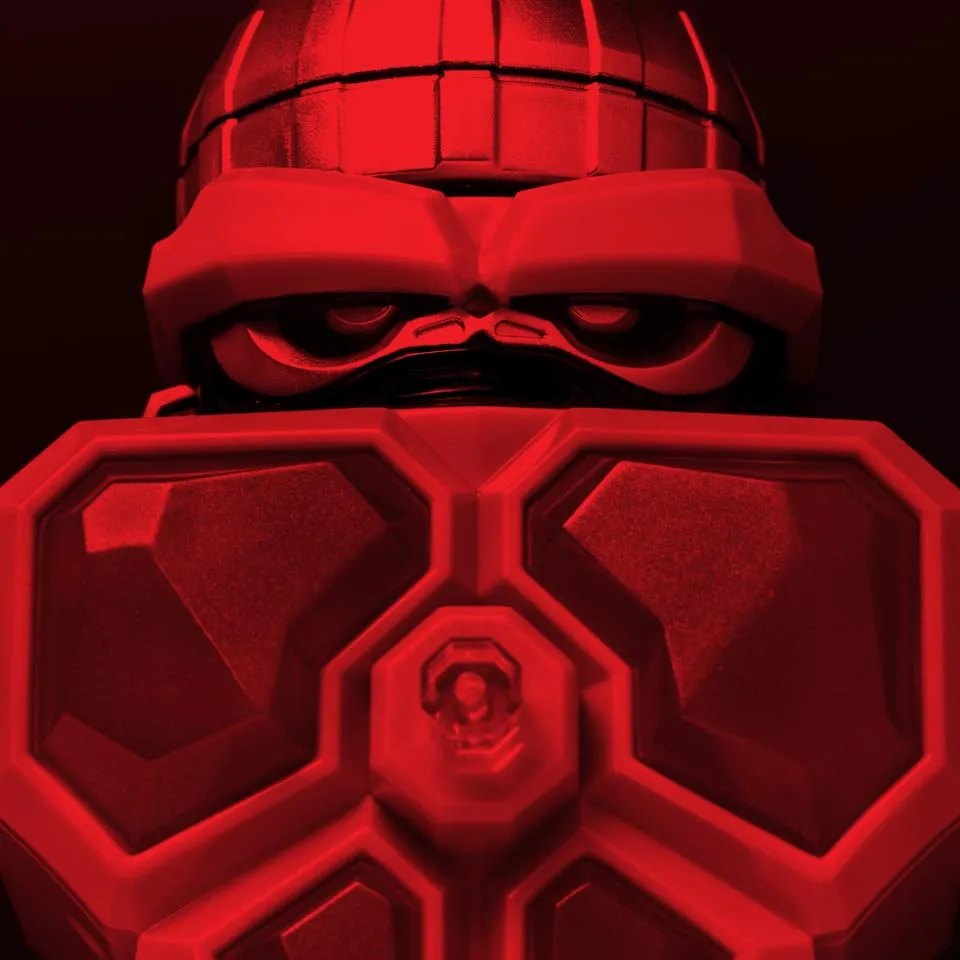Golem Variations
Article in the Exhibition Catalogue GOLEM
Peter Schäfer
Letters—Hebrew letters—everywhere. They fly out of a burning book, out of the Hebrew clock on the Jewish Town Hall in Prague, and out of the ten sefirot, the secret forces of incorporeal God.
According to Jewish tradition, the handbook Sefer Yetzirah, the "Book of Creation," contains God’s blueprint for the creation of his world. The construction plans are made up of the numbers from one to ten (which in Hebrew are also represented by letters) and the twenty-two letters of the Hebrew alphabet. Especially potent are the letters of the tetragrammaton: the four consonants of the divine name, YHWH, which cannot be spoken. God combined these letters in a complex process and used them to create the world. Anyone who knows the letters and their possible permutations, the Book of Creation tells us, can imitate God and create a world—or just a person, a golem.
In his innermost essence, the Jewish God is unfathomable and unknowable. As a very first act of creation, however, he unfolded internally in his ten divine forces or potencies. These potencies communicate dynamically with each other and ultimately, in several steps, initiate the creation of worlds external to God, culminating in the earthly world of human beings. Podwal’s God consists of letters and configures himself as a golem—a God not yet unfolded, who needs the earthly world and humankind for his own completion.
Combining Letters Mark Podwal, New York, 1982 Ink on paper, 43,2 x 35,6 cm Drawing for The Golem by Elie Wiesel Courtesy of the artist.
The late Baroque Jewish Town Hall in Prague has two clocks: one on the bell tower, with the usual Roman numerals, and another one on the gable below, with Hebrew letters as numbers on the clock face. The hands of this clock turn from right to left—counterclockwise, but in accordance with the right-to-left flow of Hebrew script. Yet this clock does not merely measure time. The letters break away from it like a swarm of bees to create the golem of Prague, the rescuer of the Jews.
The Dream of Rabbi Loew Mark Podwal, New York, 1982 Ink on paper, 35,4 x 28,2 cm Drawing for The Golem by Elie Wiesel Courtesy of the artist.
The Book of Creation is on fire, set alight by the Christians’ hatred of the Jews. But it does not—cannot—burn away. The letters, with their power of creation, fly free in the fire and smoke. Will they return to God, their origin? Or will they create new Jewish life in another place and at another time?
Peter Schäfer was appointed as the new director of the Jewish Museum Berlin Foundation on 1 September 2014. From 1998 to 2013 he was Ronald O. Perelman Professor of Jewish Studies and Professor of Religion at Princeton University. Peter Schäfer is one of the most respected international scholars of Jewish Studies, he received the Leibnitz Prize, the Mellon Award, the Ruhr Prize of Arts and Science, the Leopold-Lucas-Prize and the Reuchlin-Prize.
Translated by Kate Sturge
Burning Books Mark Podwal, New York, 1982 Ink on paper, 43,2 x 35,6 cm Drawing for The Golem by Elie Wiesel Courtesy of the artist.
Citation recommendation:
Peter Schäfer (2016), Golem Variations. Article in the Exhibition Catalogue GOLEM.
URL: www.jmberlin.de/en/node/4703

Online Edition of the GOLEM Catalog: Table of Contents
The Golem in Berlin: Introduction by Peter Schäfer
Chapter 1
- The Golem Lives On: Introduction by Martina Lüdicke
- My Light is Your Life: Text by Anna Dorothea Ludewig
- Avatars: Text by Louisa Hall
- The Secret of the Cyborgs: Text by Caspar Battegay
Chapter 2
- Jewish Mysticism: Introduction by Emily D. Bilski
- Golem Magic: Text by Martina Lüdicke
- Golem, Language, Dada: Text by Emily D. Bilski
Chapter 3
- Transformation: Introduction by Emily D. Bilski
- Jana Sterbak’s Golem: Objects as Sensations: Text by Rita Kersting
- Crisálidas (Chrysalises): Text by Jorge Gil
- Rituals: Text by Christopher Lyon
- A Golem that Ended Well: Text by Emily D. Bilski
- On the Golem: Text by David Musgrave
- Louise Fishman’s Paint Golem: Text by Emily D. Bilski
Chapter 4
- Legendary Prague: Introduction by Martina Lüdicke
- Current page: Golem Variations: Text by Peter Schäfer
- Rabbi Loew’s Well-Deserved Bath: Text by Harold Gabriel Weisz Carrington
Chapter 5
- Horror and Magic: Introduction by Martina Lüdicke
- Golem and a Little Girl: Text by Helene Wecker
- The Golem with a Group of Children Dancing: Text by Karin Harrasser
- Bringing the Film Set To Life: Text by Anna-Carolin Augustin
- Golem and Mirjam: Text by Cathy S. Gelbin
Chapter 6
- Out of Control: Introduction by Emily D. Bilski
- Golem—Man Awakened with Glowing Hammer: Text by Arno Pařík
- Dangerous Symbols: Text by Charlotta Kotik
- Be Careful What You Wish For: Text by Marc Estrin
Chapter 7
- Doppelgänger: Introduction by Martina Lüdicke
- From the Golem-Talmud: Text by Joshua Cohen
- Kitaj’s Art Golem: Text by Tracy Bartley
- The Golem as Techno-Imagination?: Text by Cosima Wagner
See also
- GOLEM: 2016, online edition with selected texts of the exhibition catalog
- GOLEM: 2016, complete printed edition of the exhibition catalog, in German
- Golem. From Mysticism to Minecraft: Online Feature, 2016
- GOLEM: Exhibition, 23 Sep 2016 to 29 Jan 2017
